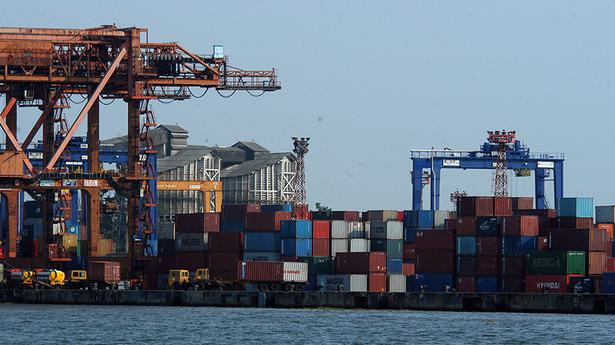
Dependence on components from abroad hurts importers
The Hindu
Soaring container costs, from Rs 1.5 lakh to Rs 12 lakh, hurt importers in Karnataka
India’s imports have only been rising despite its collective push for Atmanirbhar Bharat, Make in India and Production Linked Incentives (PLI) schemes as imported components still constitute a significant portion of most finished products, equipment, or machines manufactured at home. Be it a large manufacturing or engineering corporation or a micro-enterprise that employs just 5 or 10 people, all are dependent on imports of components that are not available in the country.
For instance, over 6 lakh micro, small and medium enterprises in Karnataka have to import various auto components, electrical or electronic items, chemicals, machine tools, machinery, industrial dyes, wools, yarn, cables, wires, metals, sheets, paints, etc., if they want to manufacture products and fulfill their customer requirements. In MSMEs, some 67% to 70% of components in automotive, engineering, textile and food processing are imported.
Prof. Narendar Pani, an economist and Professor and Dean at the National Institute of Advanced Studies at the Indian Institute of Science Campus, Bengaluru, said the country’s share of imports, as a proportion to GDP, has gone up massively. “So as imports go up we should make up with additional exports. But the fact is an increase in imports makes you dependent, the rupee becomes weak as imports have been causing inflation at home,’‘ Prof Pani said. “As imports increase at a time when demand is already sluggish, we end up with stagflation (inflation with market stagnation). Prices and costs of imports are increasing while the demand is falling.’‘
To absorb the inflation, the country has to grow more rapidly. Although the overall inflation has been a part of liberalisation, the current sudden increase was due to an increase in oil prices, he added.
Commenting on Indian manufacturer’s dependence on imports, Parasuraman T.R., immediate Past President, BCIC and President and Whole-Time Director at Toyota Industries Engine India, said to support the electric vehicle sector, companies imported a wide range of items from batteries, EV motors, electronic control units (the heart of EV vehicles), semiconductors, measuring equipment, special metals, machine tools, highly-specialised technologies etc. If you take the auto sector alone, some 20% to 50% of components are imported and in the case of luxury cars imported components could go up to 90% to 100%.
The government’s recent decision to impose a 15% export duty on a range of finished steel products would make exports less attractive which in turn could bring domestic steel prices down, create buoyancy in the local market and could reduce inflation, he argued. “The government is expecting a 10% to 15% fall in steel prices. Falling steel prices will be the starting point of a great cycle and will have a cascading effect on the price of all finished products, infrastructure, logistics cost, food prices, cost of living, more money will be in the purse and will reduce inflation,’‘ Mr. Parasuraman added.
Gaurav Manchanda, Founder & Managing Director, The Organic World, a retail chain, said, ”Consumption is directly related to income and affordability. With import inflation and increasing price points, consumers will naturally be drawn to lower price points, value for money offers and bargain deals.’‘ Based on the trends over the last two years, the demand for everyday essentials continues to remain largely consistent, while when it comes to niche items; for example, clean beauty products, exotic fruits and vegetables, vegan protein powders etc the price point begins to hit customers, Mr. Manchanda observed.













